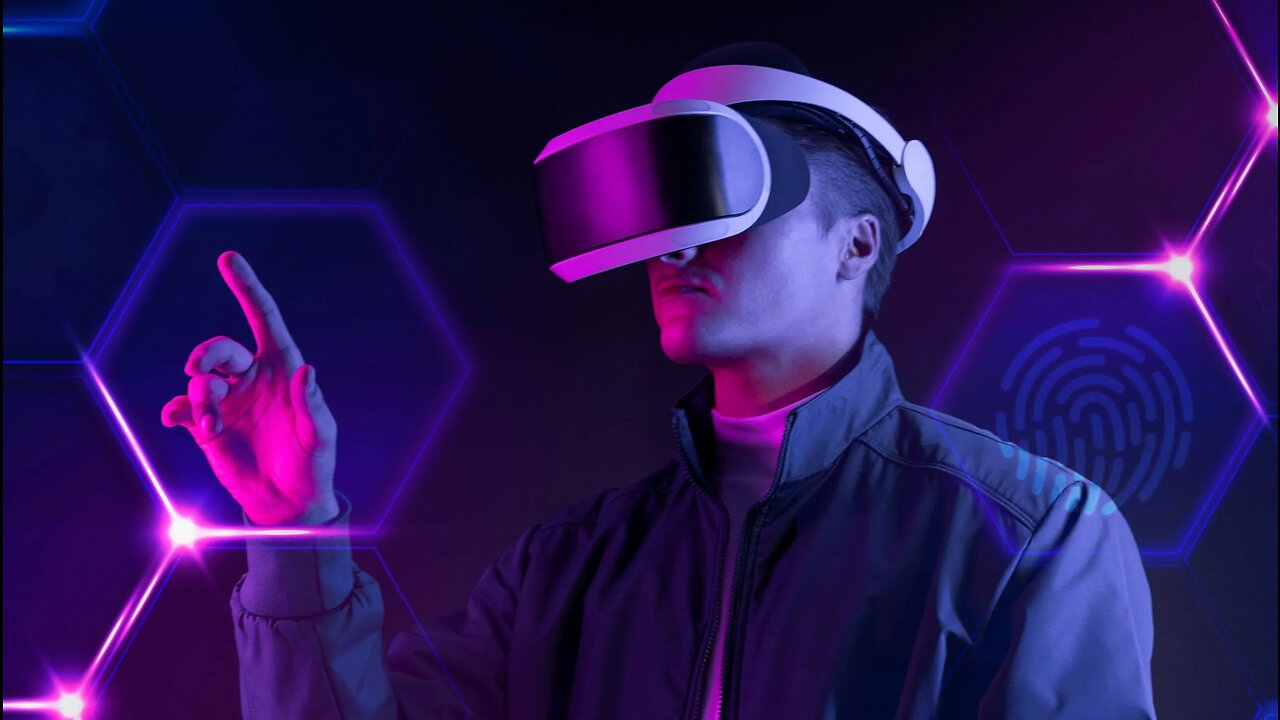Premium Only Content

How Life Will Look Like In 2050
In the year 2050, life will have undergone significant transformations, driven by advancements in technology, shifts in social norms, and a heightened global awareness of sustainability. Here's a speculative description of how life might look in 2050:
Advanced Technology Integration:
By 2050, technology will be seamlessly integrated into all aspects of daily life. Smart homes will anticipate residents' needs, adjusting lighting, temperature, and even preparing meals based on personal preferences. Augmented Reality (AR) and Virtual Reality (VR) will create immersive experiences for work, entertainment, and education, making remote collaboration feel as natural as face-to-face interactions.
Transportation Revolution:
Transportation will have evolved dramatically, with autonomous vehicles dominating the roadways. Electric and hydrogen-powered vehicles will be the norm, reducing carbon emissions and air pollution. Hyperloop-like systems will offer ultra-fast travel between cities, further shrinking the world and enhancing global connectivity.
Renewable Energy Adoption:
Sustainable energy sources like solar, wind, and tidal power will have become the primary energy providers. Advances in energy storage technology will ensure a reliable power supply even during cloudy or windless periods. High-efficiency buildings and infrastructure will reduce energy consumption and environmental impact.
Healthcare and Longevity:
Medical breakthroughs will lead to personalized healthcare solutions, with treatments tailored to an individual's genetic makeup. Wearable devices and implants will continuously monitor health metrics, allowing for early detection of diseases. The average life expectancy will have increased significantly, with 100 years becoming a more common milestone.
Environmental Consciousness:
The global awareness of environmental issues will have resulted in a widespread commitment to sustainability. Single-use plastics will be nearly eradicated, replaced by biodegradable alternatives. Circular economies will minimize waste, and reforestation efforts will have mitigated some of the effects of deforestation.
Urban Design and Vertical Farming:
Cities will be designed with a focus on green spaces, efficient land use, and pedestrian-friendly infrastructure. Vertical farming will provide a significant portion of urban areas' food supply, reducing the need for extensive agricultural land and decreasing transportation distances.
Global Connectivity and Education:
High-speed internet will be accessible to even the most remote areas, fostering global connectivity and enabling equitable access to education and information. Online learning and virtual classrooms will be the norm, revolutionizing traditional educational models.
Space Exploration and Colonization:
Advancements in space technology will lead to increased exploration and even colonization of other planets and celestial bodies. Lunar bases and Mars colonies will be established, paving the way for humanity's expansion beyond Earth.
Cultural Diversity and Inclusion:
Societal norms around gender, ethnicity, and identity will have evolved to embrace a more inclusive and diverse perspective. Greater global interconnectedness will lead to the blending of cultures, resulting in a richer tapestry of traditions, languages, and perspectives.
While this description is speculative and based on current trends and emerging technologies, it's important to note that the future is uncertain and subject to various factors. The vision for 2050 will be shaped by the choices we make as a society and the challenges we collectively address along the way.
-
 2:07:34
2:07:34
FreshandFit
3 hours agoWhy You Are Unhappy Dating!
5.52K6 -

Badlands Media
20 hours agoDevolution Power Hour Ep. 367
50.1K8 -
 LIVE
LIVE
Tundra Tactical
2 hours ago $1.33 earned🔥 NFA Hypocrisy EXPOSED: the Senate Just Screwed Gun Owners (Again) | Tundra Nation Live Roast 🔥
998 watching -
 LIVE
LIVE
DLDAfterDark
2 hours ago $0.07 earnedDLD Live! Red Dawn Readiness! HPA & Short Act Updates - T Rex Arms - Guns Gear & God
798 watching -
 LIVE
LIVE
GamersErr0r
2 hours agoMarvel Rivals Booty Bandit | Ft. SnoopLion
166 watching -
 56:47
56:47
Man in America
9 hours agoMEP Christine Anderson EXPOSES the SINISTER Plan for Global Slavery—and How We FIGHT BACK
49.6K16 -
 LIVE
LIVE
BlackDiamondGunsandGear
4 days ago🔴 DLD After Dark w/ Redawn Readiness / They don’t care. They not gonna start now…
204 watching -
 46:55
46:55
The Connect: With Johnny Mitchell
13 hours ago $0.02 earnedInside A Mexican Sicario Training Camp: How The Jalisco New Generation Cartel Trains It's KILLERS
5.6K1 -
 9:03
9:03
MattMorseTV
10 hours ago $0.34 earnedTrump just SHATTERED the RECORD.
15.2K17 -
 LIVE
LIVE
BubbaSZN
3 hours ago🔴 LIVE - DAY 5 OF THE FORTNITE SUMMER EVENT W/ CATDOG
137 watching